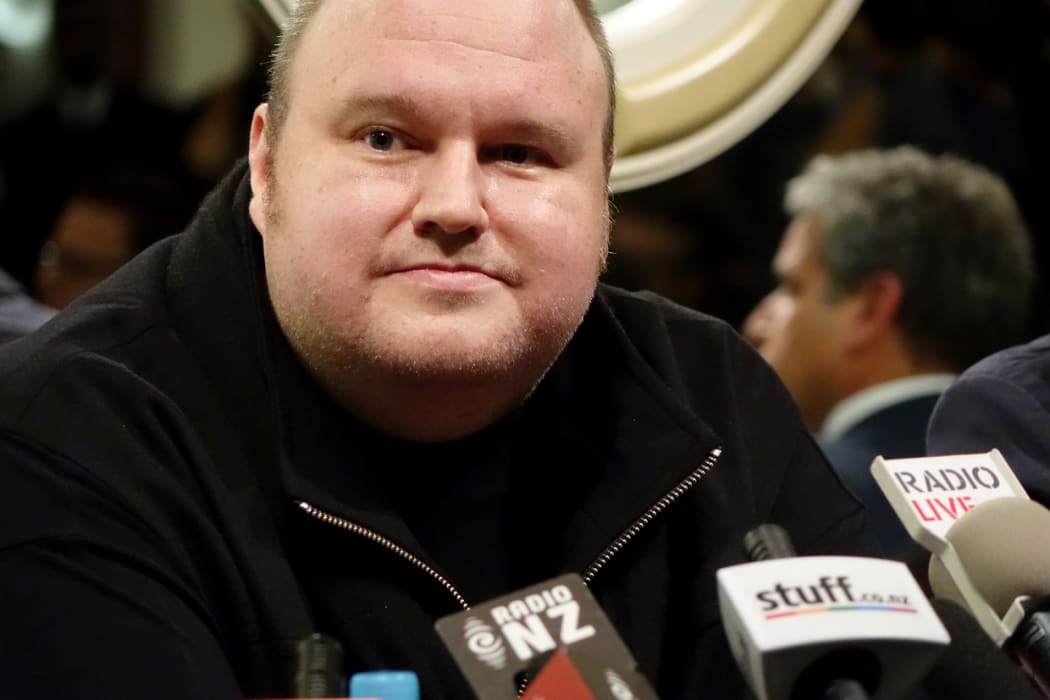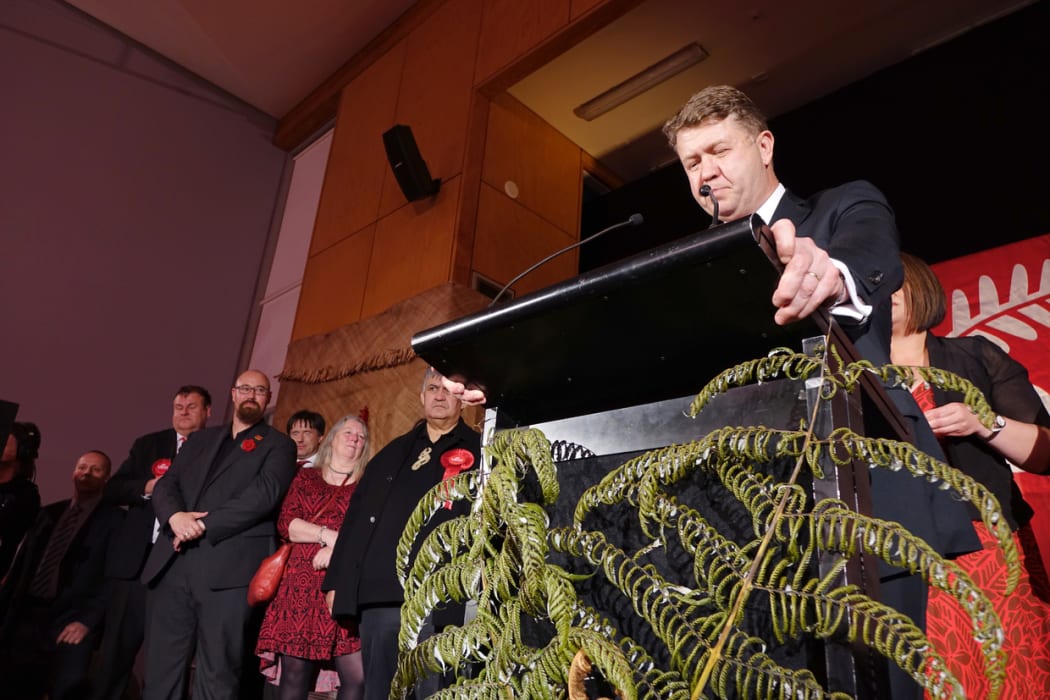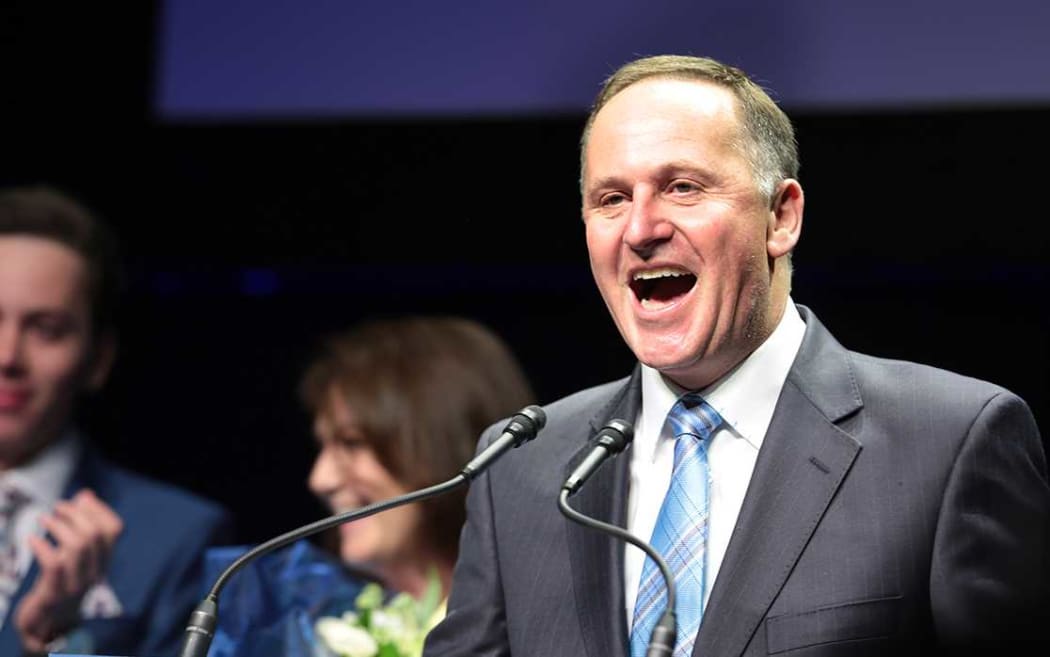Internet entrepreneur Kim Dotcom was the most brutally honest politician on election night and he was not even standing for office.

Kim Dotcom speaks to media after his "Moment of Truth" event at Auckland's Town Hall which was attended by about 1700 people. Photo: RNZ / Kim Baker Wilson
Mr Dotcom took full responsibility for Internet-Mana's dismal showing and for the loss of Hone Harawira's Te Tai Tokerau seat.
He said he had come to realise in the past two weeks the Kim Dotcom brand was poisonous.
The only question about Mr Dotcom's analysis is why he had taken so long to realise his political intervention was misplaced. But at least he had the honesty to take full responsibility for the failure, unlike some other politicians on the night.
Now the focus is on the Labour Party and what it will do after its worst election result since 1922. Its leader David Cunliffe was not about to adopt Mr Dotcom's approach.

David Cunliffe admits defeat to supporters on election night. Photo: RNZ / Kim Baker Wilson
While Mr Cunliffe takes some responsibility for the result he has already started campaigning to keep his job despite Labour's dire performance.
It is important to note that Labour's support slumping to 24.6 percent on election night is not a one-off. Its 2011 result was bad enough when its vote then dropped to 27.48 percent. That prompted then leader Phil Goff to resign.
Mr Cunliffe did make the point that Labour had already had three leaders since long-serving leader Helen Clark stepped down after Labour lost power at the 2008 election. He seems to be suggesting now is not the time to make yet another change.
Yet the leadership changes have come about because of the actions of if not Mr Cunliffe, at least his supporters. Mr Goff's leadership was undermined throughout his three years in charge making it almost impossible for him to have a clear run at the 2011 election.
Then Mr Shearer, who defeated Mr Cunliffe in a caucus vote, faced persistent attacks on his leadership before stepping aside to allow Mr Cunliffe to win the leadership in a vote of not just MPs, but party members and the affiliated unions.
When David Cunliffe took over Labour was polling on average around 33 percent and, together with the Green Party, poised to topple National from power. This year Labour's support slumped as did its hopes of regaining the Treasury benches.
It is simplistic to say one man alone is responsible for that but the buck does stop with the leader. Party members and the unions, who saw Mr Cunliffe as the great leftwing hope, will have to re-assess.
On the other side of politics the situation could not be more different.
National's leader and the Prime Minister-elect, John Key, has increased his party's vote at every election. In 2008 it got 44.93 percent, in 2011 47.31 percent and on election night this time 48.06 percent. It is a remarkable performance for which Mr Key can take much of the credit.
While his leadership is unassailable Mr Key does face problems.

John Key: "I feel both humbled and at the same time energised by the result and the prospect of a third term." Photo: RNZ / Diego Opatowski
Serious questions about the ethical conduct of his government and his office remain unanswered. While the revelations in Nicky Hager's book Dirty Politics appear to have helped rather than hindered National on election day that is not the end of the matter for Mr Key.
Nor have the allegations about mass surveillance of New Zealanders by the Government Communications Security Bureau been entirely settled yet.
Mr Key will make a mistake if he thinks he can shrug off these controversies given the size of National's vote.
He repeatedly referred to them as distractions during the election campaign, as if they were not matters of substance.
Mr Key judged correctly that he could fob off public interest in the matters by labelling 'Dirty Politics' a leftwing conspiracy and by characterising the mass surveillance claims as an attempt by outside forces to influence the election.
Outside the heat of an election campaign, however, the Prime Minister-elect might find it more difficult to avoid further scrutiny of the matters raised by Nicky Hager and American investigative journalist Glenn Greenwald.
For the moment though he is focussed on forming his new government. Even though National holds a majority in its own right Mr Key is reaching out again to ACT, United Future and the Maori Party for support.
It is remarkable that the United Future leader, Peter Dunne, with just 4533 party votes, will end up a minister again thanks to him holding on to his Ohariu seat. The Conservative Party, which won 86,616 party votes on the night, will not even be in Parliament.
Such are the vagaries of MMP.
Follow Brent Edwards on Twitter @rnzgallerybrent
View our full Election 2014 coverage

